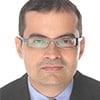Sep 26, 2019
Philips highlights importance of early detection of heart disease on World Heart Day
Philips launches heart health quiz to increase individual awareness of risk factors and early symptoms, to encourage early detection of heart disease and preventive care
Kuala Lumpur, Malaysia – Royal Philips (NYSE: PHG, AEX: PHIA), a global leader in health technology, is putting the spotlight on early detection and prevention of heart disease – a leading cause of death globally and a clinically silent disease – with the launch of the Philips Heart Health Quiz (http://philipshearthealth.online) ahead of World Heart Day 2019 (29 September). This follows findings from Philips’ Future Health Index 20191 study that revealed how healthcare practitioners are recommending the use of digital health technology to track health data, just as patients are seeking greater access to data for better empowerment of their health.
Philips developed the quiz to help the public recognise risk factors and early symptoms of heart disease based on global as well as Asia specific research and insights. This is part of our efforts to enable consumers to be more aware of individual heart health and lifestyle habits that impact it, and to encourage early detection of heart disease.
Muhammad Ali Jaleel
Country Manager, Philips Malaysia
He added: Early detection and prevention of heart disease is especially timely in Malaysia as Malaysians are found to be getting heart disease at a much younger age compared to neighbouring as well as developed countries. The average age of Malaysians with heart diseases is 582, compared to Singapore (61), China (63), the United States (66), Canada (68) and Thailand (68). Early detection and preventative efforts are also important as cardiovascular disease has remained the leading cause of death among Malaysians3since 2005 – with the number of deaths due to cardiovascular disease doubling from 2007 (8,776 deaths) to 2017 (13,503 deaths)4.
The Future Health Index 2019 indicated that two-fifths of healthcare professionals globally advise their patients to track three key indicators of health – blood pressure, physical activity and weight, which has become more convenient as more people embrace digital health technology and mobile health apps.
This is where we see a clear opportunity for consumers to be empowered with self-monitoring and conscious self-care, and to share the data proactively with their healthcare practitioners to enable heart disease prevention and early stage screening for improved heart health
Muhammad Ali Jaleel
Country Manager, Philips Malaysia
Empowered heart patients are more satisfied patients
According to the Future Health Index, individuals who have a medical history of cardiac health issues are more likely than individuals overall to agree that they use digital health technology or mobile health apps to feel more in control of their health (38% vs 34%). Individuals with a medical history of cardiac health issues are also more likely than individuals overall to share health data from digital health technology or mobile health apps when they meet with their healthcare professional (26% vs 23%). Cardiologists are seeing this trend in their practice as well, as they are more likely than healthcare professionals overall to report that at least a few of their patients share data from digital health technology or mobile health apps with them on an ongoing basis (71% vs 58%) as well as most/every time they meet (78% vs 62%). When patients share data with their healthcare professionals, they perceive the quality of care they receive to be higher (74% vs 66%). Increasing the usage of digital health technology among individuals and encouraging data sharing with their healthcare professionals could empower patients to adopt a more proactive attitude towards their health management and ultimately improve healthcare outcomes. Take this one-minute Philips Heart Health Quiz to learn more about the early detection of heart disease – early symptoms, risk factors and lifestyle habits – and share it with your loved ones this World Heart Day: http://philipshearthealth.online For more insights on the impact of digital health technology on the transformation of healthcare, please visit the Philips Future Health Index 2019 report at this link: https://www.philips.com/a-w/about/news/future-health-index/reports/2019/transforming-healthcare-experiences.html
1 Philips Future Health Index 2019: https://www.philips.com/a-w/about/news/future-health-index/reports/2019/transforming-healthcare-experiences.html 2 National Cardiovascular Disease Database (NCVD)-ACS Registry, Summary of the Annual Reports of the NCVD-ACS Registry 2006-2015, https://www.malaysianheart.org/files/5c4af9bc179b2.pdf 3 Department of Statistics Malaysia, 31 October 2018, Statistics on Causes of Death, Malaysia, 2018, https://www.dosm.gov.my/v1/index.php?r=column/pdfPrev&id=aWg2VjJkZHhYcDdEM3JQSGloeTVlZz09 4 New Straits Times Online, 23 January 2019, Cardiovascular diseases have almost doubled in 13 years: Deputy Health Minister, https://www.nst.com.my/news/nation/2019/01/453741/cardiovascular-diseases-have-almost-doubled-13-years-deputy-health
About Royal Philips
Royal Philips (NYSE: PHG, AEX: PHIA) is a leading health technology company focused on improving people's health and enabling better outcomes across the health continuum from healthy living and prevention, to diagnosis, treatment and home care. Philips leverages advanced technology and deep clinical and consumer insights to deliver integrated solutions. Headquartered in the Netherlands, the company is a leader in diagnostic imaging, image-guided therapy, patient monitoring and health informatics, as well as in consumer health and home care. Philips generated 2018 sales of EUR 18.1 billion and employs approximately 78,000 employees with sales and services in more than 100 countries. News about Philips can be found at www.philips.com/newscenter.
Topics
Contacts

Sheo S. Rai
Senior Manager
Brand and Communications
Philips ASEAN Pacific









